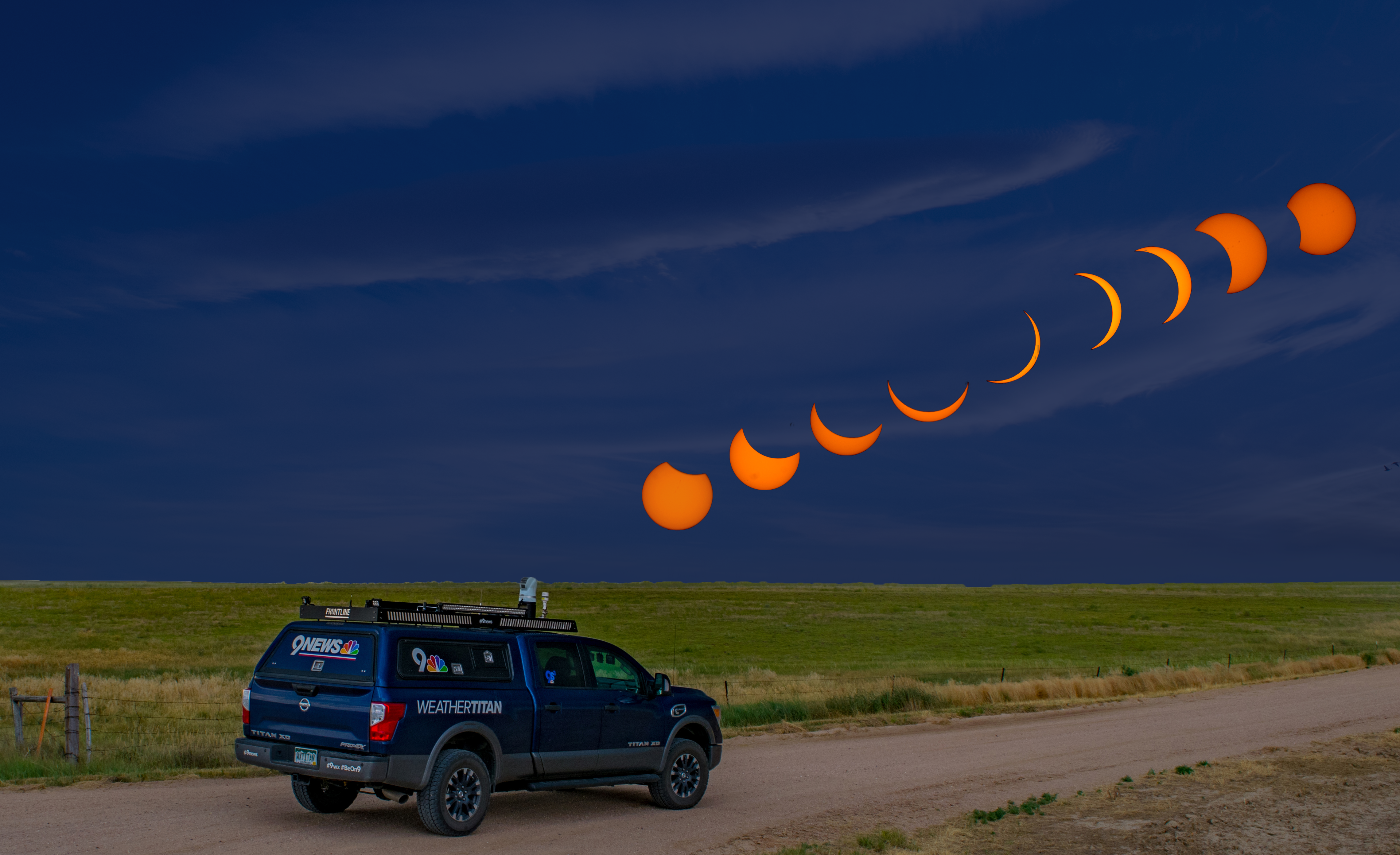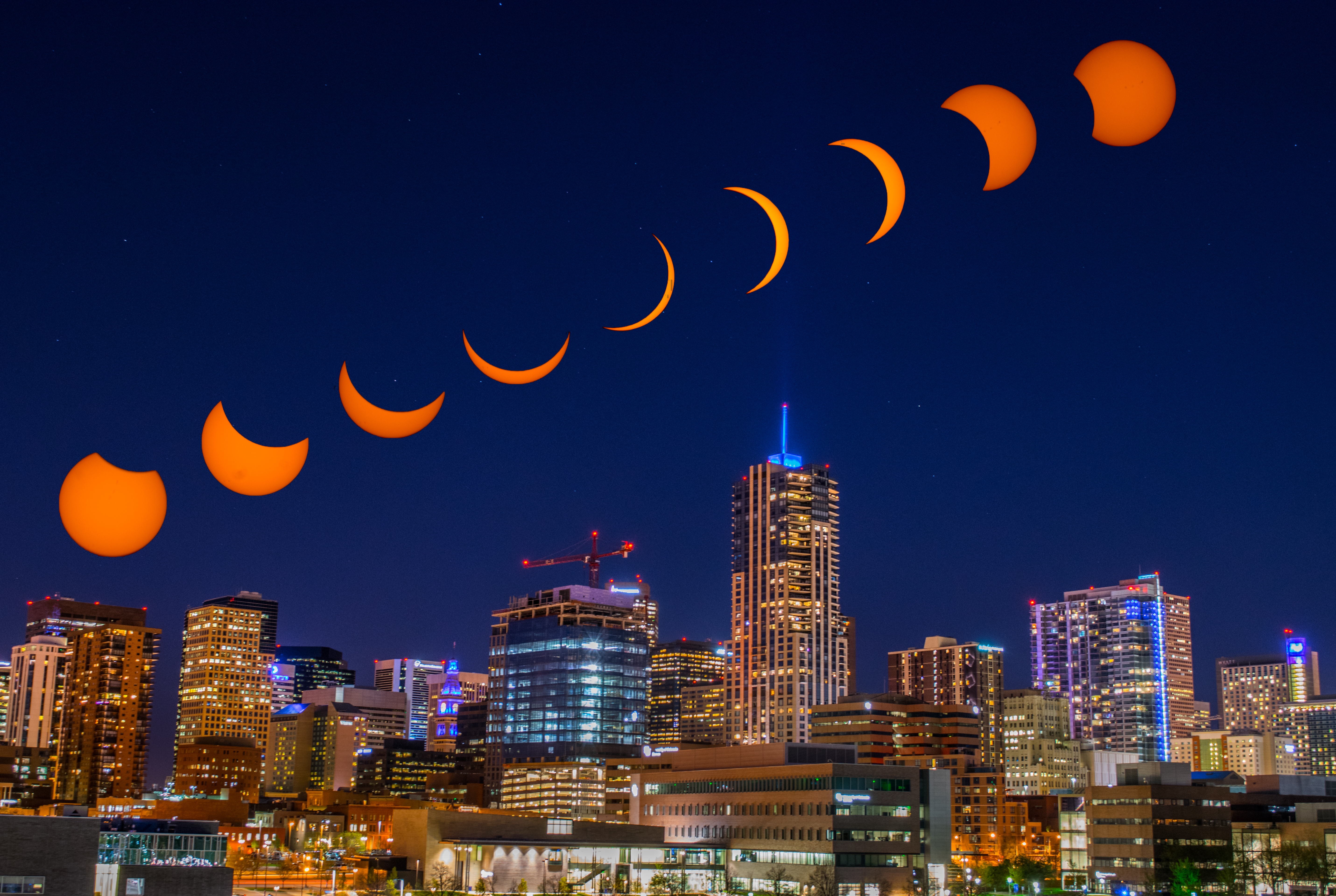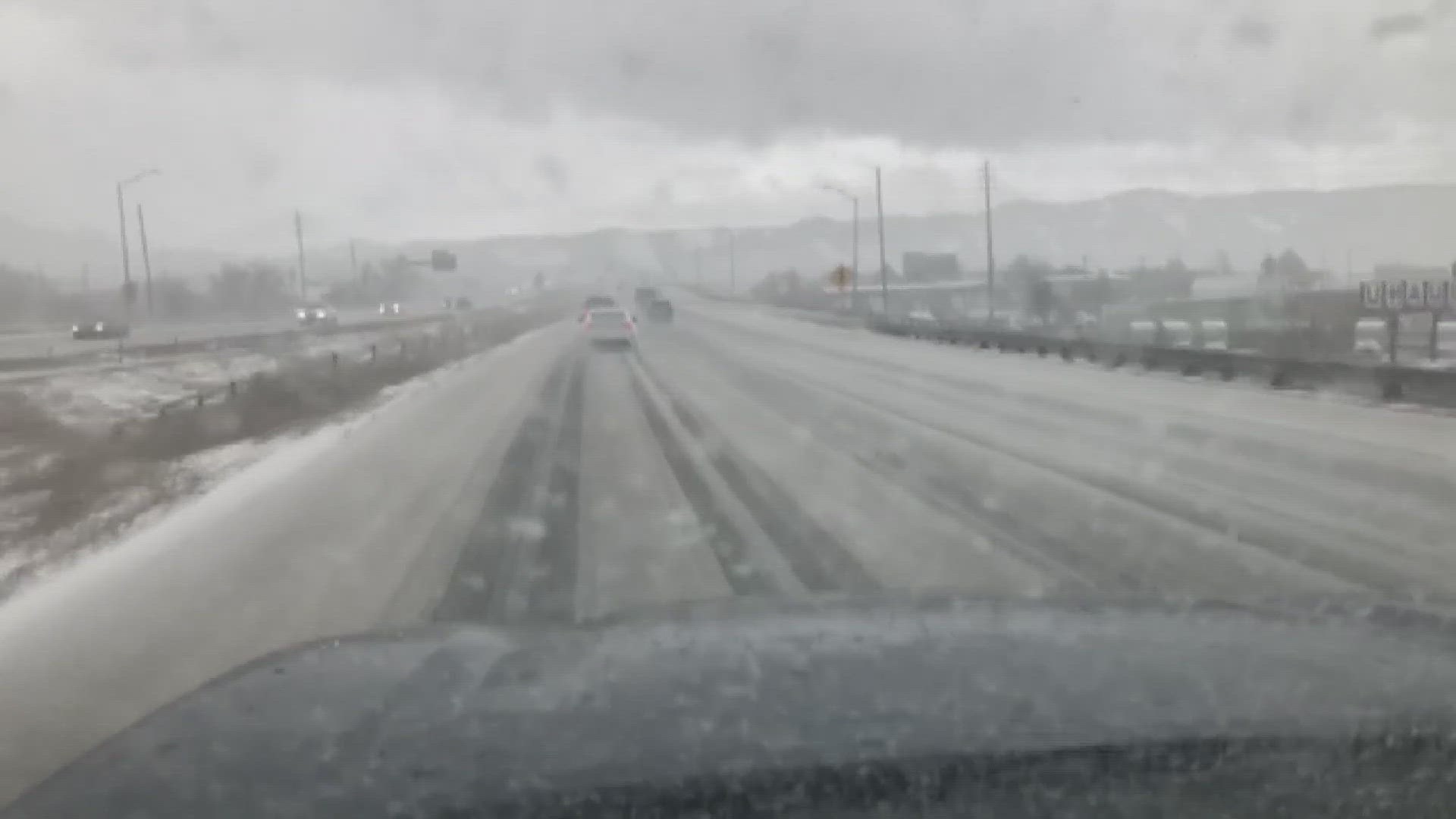The shadow from a total solar eclipse, crossed the United States on Monday, August 21. It was a one in 100 year event. Then, five days later, a Category 4 hurricane made landfall in Texas, causing a one in 500 year flood event.
Two massive and rare events occurring in the same week. That has certainly raised some eyebrows, and it's only natural to question wether or not there is some correlation between the two, or even if there are some strange cosmic forces at work in the universe.
Before we get too carried away, let's look at some of the actual meteorology, and physics involved. 9NEWS spoke with atmospheric scientist, Jeff Weber at the University Corporation for Atmospheric Research (UCAR), in Boulder, to get some insight.
Weber said that tropical systems thrive off the heat, and the warm ocean waters of the planet. A solar eclipse decreases the amount of solar radiation that reaches the earth.
"So if anything, the eclipse would have had taken energy away from the storm system, which it didn't do that either," said Weber. Adding that the eclipse likely had no impact on Harvey's energy.

So what about the tidal forces of the moon impacting the storm surge of Harvey?
"Our tides are dictated by the moon. At the moment of eclipse, there was actually exceptional tides because the moon and the sun were in complete alignment, but that is certainly not going to propagate past that eclipse time, six days later," Weber said.
Some of the intrigue over this topic may originate from some recent studies done during the solar eclipse, that proves that the weather was impacted by the eclipse. The temperature dropped 10 to 15 degrees when the eclipse was in complete totality, and some cloud development was halted while the shadow passed.
The Cooperative Institute for Research in the Atmosphere (CIRA) at Colorado State University, in Ft. Collins, showed 9NEWS imagery captured from the GOES 16 weather satellite, of a developing layer of cumulus clouds over the Midwest U.S. during the eclipse. The cloud field stopped growing, and even collapsed a bit while the shadow passed over, then fired back up once the sunlight returned. A direct impact of the eclipse on the weather.
However, the diurnal heating of the day occurs on an atmospheric time frame called the meso scale, which is the same time frame in which the solar eclipse occurred in. A hurricane is much longer lasting than day-to-day weather. It occurs in the synoptic scale time frame.
"It is just too unlikely for an event that lasts two and a half minutes, to impact a large and powerful tropical system like Harvey that lasts a week," said Weber.
Even with all that being said, Weber wasn't quite ready to declare that the eclipse had absolutely zero impact on the developing Hurricane Harvey.
"Well, then you'd have to go to the Lorenz Theory of Chaos, and say that a little butterfly flapping it's wings in Africa, is the initial disturbance that can start off a tropical system, that grows the size of a Katrina, and destroys a city," said Weber. Stopping just short of moving further into the territory where meteorology meets philosophy.


